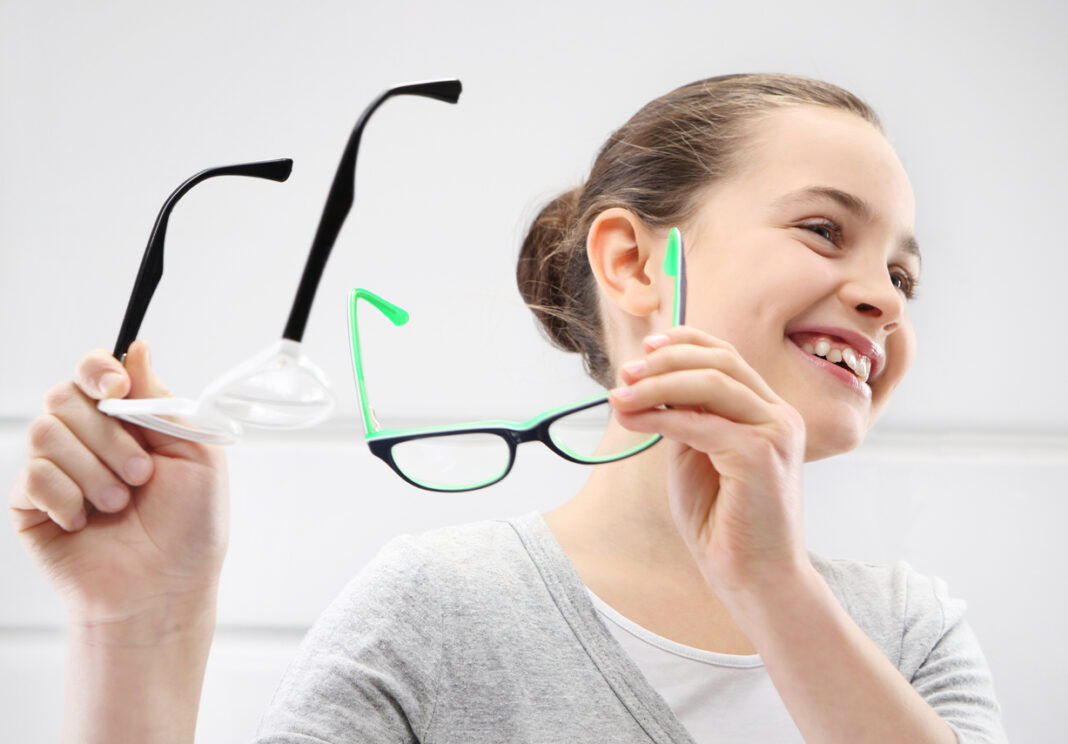Myopia (short or nearsightedness) is a very common eye condition amongst children. Most parents initially choose to correct their child’s myopia with glasses. However, many of them quickly recognize that children don’t always get on well with glasses: misplacing, breaking or bending them happens frequently, other than being in the way of many outdoor pursuits.
Did you realize that there is an alternative way to treat myopia? One that is both safe and comfortable and could also help slow down the rapid progression of your child’s myopia.
Read on to find out more about this treatment called orthokeratology dubai.
What is Ortho-K?
Ortho-K uses a specialty contact lens. The practice of using these lenses is called Orthokeratology and it is a treatment that your child can receive at many reputable eye doctors.
What makes Ortho-K lenses different from regular contact lenses is that they are worn overnight but removed during the day. This is because they gently reshape the curve of the eyeball while the patient sleeps. We’ll explain more about how they work next.
How do ortho-k lenses work?
Let’s begin by understanding what’s happening to the eye in a child with myopia before looking at how ortho-k can help.
Recent research suggests that one in six 5- to 7-year olds has myopia and that more than half of 15- to 17-year-olds are myopic. Why are there such large numbers?
Myopia can occur for many reasons. The primary causes are genetic or lifestyle-related and added environmental factors, such as heavy computer use. In any case, it’s important to understand these risk factors for children’s eye health.
A child with myopia will experience their eyeball growing too long (axial elongation) and/or the cornea becoming steeper.
The cornea is the clear outer layer of the eyeball. The elongating of the eyeball and/or steeper cornea prevents light from entering the eye optimally. It will alter distance images from focusing on the retina. This causes vision for long distances to be blurred while vision quality for short distances is maintained.
Ortho-k lenses work by gently reshaping the cornea while the child patient sleeps. When the lenses are removed in the morning, the effects last for the day, so that good vision is maintained until bedtime. But, because the effects are only temporary, the lenses should be worn every night, like retainers.
Most parents find these are a comfortable alternative to glasses for children with mild-to-moderate myopia; even in young children. It is a gentle treatment, and it is non-invasive. Families quickly get used to the routine of using them. Inserting and removing ortho-k is very similar to the process of using standard lenses.
Why opt for ortho-k over eyeglasses?
Ortho-k offers three benefits that eyeglasses can’t.
- Ortho-k lenses can slow down the progression of myopia.
There is plenty of scientific evidence now that shows how Ortho-K lenses can slow the progression of myopia. While it can’t reverse or halt myopia, it can make a significant difference, especially in the short term, but also in the long term.
An example of one research program that has found this benefit exists, is a two-year study from Hong Kong published in 2012, where researchers compared children using Ortho-K with those using glasses. The researchers found that the increase of axial elongation was 43% slower in the Ortho-K group than in the group wearing glasses. Younger children benefited most from Ortho-K use.
Consider that no other vision correction method for myopia can offer this benefit. Ortho-k can help prevent not just myopia from worsening but also the problems it can cause in school and everyday life. It can help reduce the risk of serious Myopia related conditions in adulthood, such as retinal degeneration or detachment.
- Children will no longer need glasses or daytime contact lenses.
Ortho-k should remove the need for glasses or regular contact lenses. This is good news for parents of children who are prone to losing or breaking their glasses. Some children also feel self-conscious wearing glasses, so ortho-k can be good news for them, too.
For sports and certain other activities, wearing glasses or contact lenses can be unsuitable and uncomfortable. Overnight Ortho-K lenses can allow your child to participate in and enjoy these activities more freely.
- Orthokeratology can help prevent or postpone surgical intervention
Once your child reaches adulthood, they could be a candidate for vision correction surgery if their myopia is significant enough, and also not too high. Reputable eye doctors are unwilling to operate on patients below 18 years of age because their eyes are still changing, and 18 is the age of consent too.
Ortho-K is a good interim option that could help limit the amount of myopia correction surgery needed, once stability is evident. It could reduce the chances of your child ever needing surgery for myopia related complications of the retina.
Is Ortho-K safe for children?
Ortho-k is very safe. Negative side effects are rare when guidelines are well followed.
Good hygiene will help prevent infection and parental supervision is important to ensure this. There is a tiny chance that your child may experience halos or glares, but Ortho-K is reversible. Any negative side-effects can be reversed by stopping the use of Ortho-K and switching back to glasses or alternative myopia controlling contact lenses.
How do I find out more about ortho-k?
Your eye doctor will happily give you further information if you’re interested in ortho-k treatment for your child.
Parents who have Myopia should have their children checked annually to rule out early onset Myopia.
Together, you can decide whether your child could benefit from ortho-k.
Soon, your child could begin enjoying daytime freedom from needing glasses. Remember that early use of ortho-k can help maximize its benefits for long-term eye health, so don’t wait too long.
AUTHOR BIO
Dr. Millicent M. Grim, Specialist Ophthalmologist & LASIK Specialist, is the Medical Director of Gulf Eye Center in Dubai. Since 2002, Gulf Eye Center’s highly qualified ophthalmologists and optometrists/ODs have been successfully treating a wide range of eye conditions using advanced techniques. They also provide comprehensive eye care and vision restoration procedures for people of all ages.























